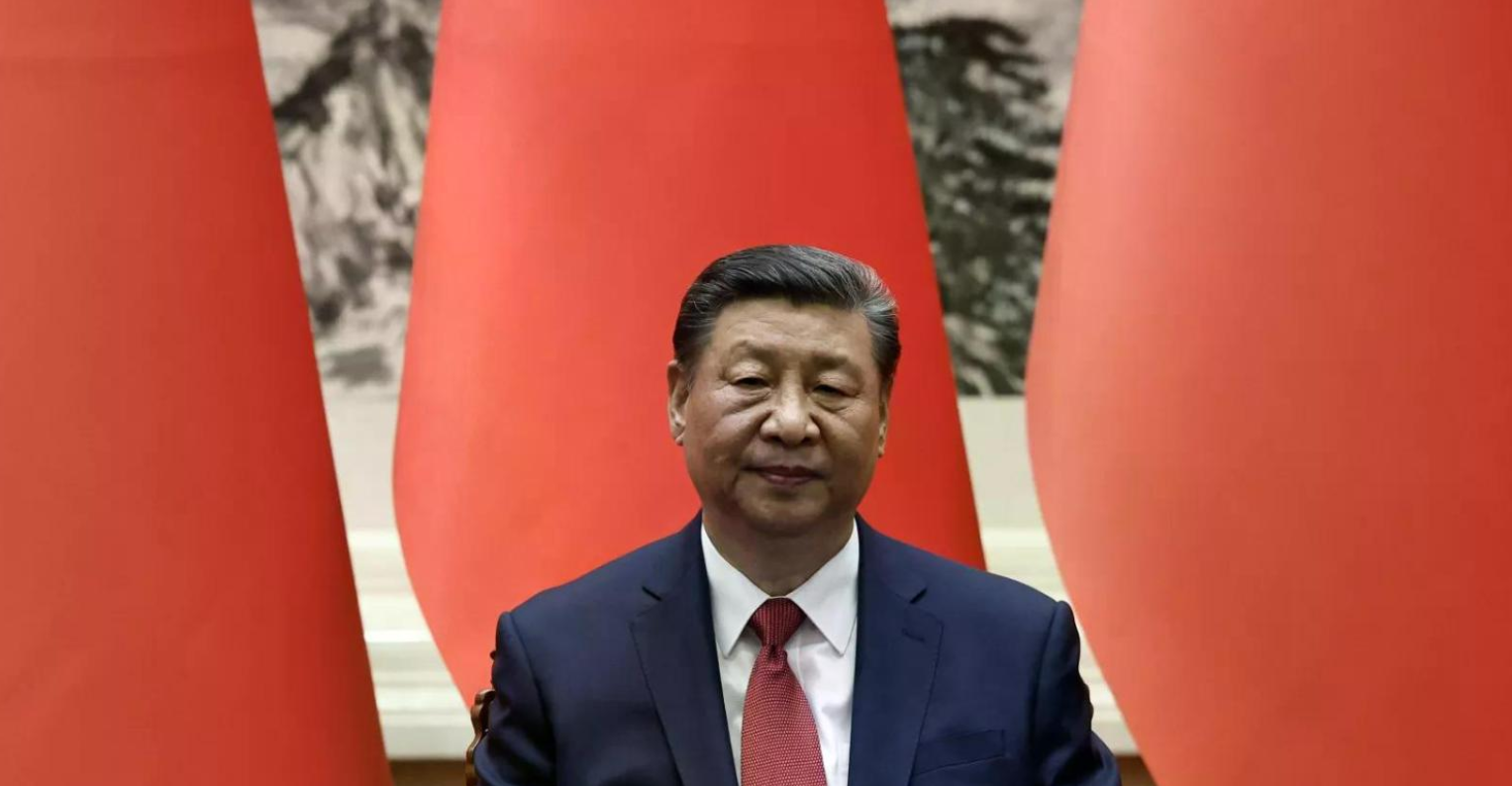-
Posts
10,078 -
Joined
-
Last visited
Content Type
Events
Forums
Downloads
Quizzes
Gallery
Blogs
Everything posted by Social Media
-
People gather at Republique plaza to protest the far-right National Rally, which came out strongly ahead in first-round legislative elections Marine Le Pen's far-right National Rally (RN) party has taken a significant lead in the first round of France’s parliamentary elections, initial projections showed. This development marks a historic moment as the RN moves closer to gaining substantial power. With an unusually high voter turnout, the RN bloc garnered 34% of the vote, while the left-wing New Popular Front (NFP) coalition secured 28.1%. President Emmanuel Macron’s Ensemble alliance fell to a distant third with just 20.3%, according to initial estimates by Ipsos. Despite leading the vote count, the RN may fall short of the 289 seats needed for an absolute majority, suggesting a potential hung parliament and increased political uncertainty. Projections indicate that after the second round of voting, the RN could secure between 230 and 280 seats in the 577-seat National Assembly, a remarkable increase from its previous count of 88 seats. The NFP is expected to win between 125 and 165 seats, while Ensemble could end up with between 70 and 100 seats. Macron had called the snap election after his party’s defeat by the RN in the European Parliament elections earlier in the month. This outcome could force Macron to navigate the remainder of his presidential term in an uneasy partnership with a prime minister from an opposition party. In Henin Beaumont, the RN's election party erupted in celebration as the results were announced. However, Marine Le Pen cautioned that the second round of voting would be crucial. “Democracy has spoken, and the French people have placed the National Rally and its allies in first place – and has practically erased the Macronist bloc,” she told a jubilant crowd, adding that “nothing has been won – and the second round will be decisive.” Jordan Bardella, the RN’s 28-year-old leader and prime ministerial hopeful, echoed Le Pen’s sentiment, declaring the upcoming vote as one of the most decisive in the history of the Fifth Republic. Bardella had previously stated that he would refuse to govern a minority government, suggesting that if the RN does not secure an absolute majority, Macron might have to find a prime minister from the hard left or form a technocratic government. A period of political bargaining is now expected, as centrist and left-wing parties consider standing down in certain seats to block the RN from gaining a majority. This strategy, known as the “cordon sanitaire,” has been used in the past to prevent the far-right from taking office. Jean-Luc Melenchon, leader of the France Unbowed party and a key figure in the NFP, has instructed his supporters to prevent the RN from gaining more seats. Similarly, Marine Tondelier of the Green Party has appealed to Macron to withdraw from certain seats to stop the RN. Macron’s Ensemble allies have also urged their supporters to block the RN, though they have reservations about supporting Melenchon’s party. Gabriel Attal, Macron’s protégé and the outgoing prime minister, emphasized the need to prevent the RN from winning a majority but criticized Melenchon’s France Unbowed party for hindering a credible alternative to a far-right government. Despite these efforts, the RN has made inroads in unexpected areas, winning support in regions traditionally held by other parties. For instance, in the Nord department’s 20th constituency, an RN candidate defeated the leader of the Communist Party, marking the end of a long-standing Communist hold on the seat. Macron’s decision to call a snap election three years ahead of schedule, following his party’s defeat in the European Parliament elections, has brought the country into uncharted territory. The prospect of appointing a prime minister from an opposition party under a “cohabitation” arrangement looms large. This situation could lead to significant challenges in passing domestic laws and may even result in a constitutional crisis if disagreements arise between the president and the parliamentary majority. A far-right government led by the RN could also trigger a financial crisis. The RN’s spending pledges, including reversing Macron’s pension reforms and cutting taxes, come at a time when France might need to implement austerity measures to comply with European Commission fiscal rules. This has raised concerns among bond markets, with warnings of a potential financial crisis similar to that experienced in the UK under Liz Truss. In response to the first-round results, Macron called for a broad democratic and Republican rally in the second round to counter the RN. “Faced with the National Rally, the time has come for a broad, clearly democratic and Republican rally for the second round,” he stated, urging his supporters to rally together. The next few days will be critical as political parties maneuver to block the RN from gaining further power. The outcome of the second round will determine the future direction of French politics and the extent of Marine Le Pen's influence on the national stage. Credit: CNN 2024-07-01 Get our Daily Newsletter - Click HERE to subscribe
-
The strengthening defense ties between Russia and North Korea are causing significant concern for China, according to various analysts. Edward Howell, an Oxford University lecturer and a Korea Foundation fellow at Chatham House, conveyed to Newsweek that Beijing is likely anxious about the deepening relationship between Moscow and Pyongyang, especially regarding the potential supply of arms from Russia to North Korea. This concern stems from the fact that China has long viewed itself as North Korea's primary ally, with a mutual defense treaty dating back to 1961. During a recent visit to Pyongyang, Russian President Vladimir Putin and North Korean leader Kim Jong Un signed a Treaty on Comprehensive Strategic Partnership, pledging military assistance to each other if attacked. This visit marked Putin's first trip to North Korea in 24 years. The defense pact has been condemned by the United States, Japan, and South Korea, which issued a joint statement labeling it a "grave concern to anyone with an interest in maintaining peace and stability on the Korean Peninsula." Howell suggests that China is taking a cautious approach. On one side, Beijing aims to disrupt the alliances between the U.S., Japan, and South Korea, and any increasing cooperation among them, which is likely to strengthen due to the closer ties between Moscow and Pyongyang. On the other hand, China is wary of Russia's relationship with North Korea becoming too close, as it does not want to be excluded from any significant foreign policy decisions made by North Korea. Howell emphasizes that China has a vested interest in the stability of the Korean Peninsula and may be worried that an influx of Russian military technology to North Korea could exacerbate tensions with South Korea, which are already at a peak. He further warns that a potential influx of millions of North Korean refugees into China is a scenario that Beijing fears the most. There are suspicions from Washington and Seoul that Russia might be providing North Korea with technology and expertise to enhance its ballistic missile and nuclear weapons programs, which are sanctioned by the United Nations. This exchange is believed to be in return for the munitions that North Korea has sent to Russia for use in the ongoing invasion of Ukraine. Sari Arho Havrén, an associate fellow at the Royal United Services Institute in London, offers a different perspective. She expressed surprise at the widespread commentary suggesting that the deepening ties between Russia and North Korea would alarm Beijing. According to her, it is likely that Putin received Xi Jinping’s approval for his state trip to North Korea during his recent visit to China. Arho Havrén argues that while North Korea can be unpredictable, the strengthened ties between Putin and Kim also benefit Beijing. Xi Jinping does not wish to see Russia defeated in Ukraine, and by supporting the Moscow-Pyongyang relationship, he can maintain the appearance of limiting direct military support for Russia himself. The U.S. and the European Union have criticized China for the export of dual-use technologies and components by Chinese companies to Russia, such as drone parts that bolster Russia’s military-industrial base. The Biden administration has already sanctioned several firms in China and Hong Kong believed to be facilitating this trade, leading major Chinese banks to cease processing yuan-denominated transactions with Russia. Liu Pengyu, a spokesperson for the Chinese Embassy in the U.S., told Newsweek that he was unaware of the details of the Treaty on Comprehensive Strategic Partnership between Russia and North Korea, or of the arms shipments from North Korea to Russia. He added, "But as two sovereign states, Russia and the DPRK have the right to conduct normal exchanges and cooperation." The evolving dynamics of the Russia-North Korea relationship and its implications for regional stability and international alliances underscore the complexities of geopolitical strategies and the shifting balance of power in East Asia. While China navigates its position cautiously, it remains to be seen how these developments will influence its relations with both North Korea and the broader international community. Credit: Newsweek 2024-07-01 Get our Daily Newsletter - Click HERE to subscribe
-
In an urgent bid to prevent the escalating violence between Israel and Lebanon’s Hezbollah from erupting into a broader Middle East conflict, American, European, and Arab officials have issued strong warnings to Hezbollah about overestimating its capabilities against Israel. This concerted diplomatic effort comes as cross-border hostilities intensify and hopes for a ceasefire between Israel and Hamas in Gaza remain elusive. Hezbollah, significantly more powerful than Hamas but potentially overconfident in its strength, has been launching rockets and missiles into northern Israel since the deadly Hamas attacks on October 7. These attacks killed around 1,200 people, predominantly civilians, and resulted in the abduction of 251 others. Israel's retaliatory strikes have forced tens of thousands of civilians to flee from border areas in both countries. The violence has persisted, with recent escalations following Israel’s targeted killing of a senior Hezbollah commander and Hezbollah’s substantial missile barrages in response. Amid these tensions, American and European officials are conveying to Hezbollah that it should not count on external powers, including the United States, to restrain Israel should it decide to launch a full-scale offensive into Lebanon. They are also cautioning Hezbollah not to overestimate its own military capabilities in the face of an Israeli assault. Gerald Feierstein, a former senior US diplomat in the Middle East, emphasized this message, stating, “Don’t think that you’re as capable as you think you are.” Despite a slight leveling off in hostilities over the past week, both Israel and Hezbollah continue to prepare for the possibility of a larger conflict. UN humanitarian chief Martin Griffiths has described the potential for an all-out war as "apocalyptic," underscoring the heavy casualties and widespread devastation that such a conflict could cause. US Defense Secretary Lloyd Austin recently reiterated the catastrophic implications of a war between Israel and Hezbollah, noting that it could easily escalate into a regional war with severe consequences for the Middle East. During a recent meeting with Israeli Defense Minister Yoav Gallant at the Pentagon, Austin stated, “Such a war would be a catastrophe for Lebanon.” Gallant, acknowledging the gravity of the situation, responded, “We are working closely together to achieve an agreement, but we must also discuss readiness on every possible scenario.” The Biden administration has underscored to Israel that opening a second front in its ongoing conflict is not in its best interest. This point was reiterated to Gallant during his talks in Washington with Secretary of State Antony Blinken, CIA Director William Burns, National Security Adviser Jake Sullivan, and others. White House National Security Spokesman John Kirby affirmed, “We’re going to continue to help Israel defend itself; that’s not going to change. But as for a hypothetical — specifically with respect to the northern border line… again, we want to see no second front opened, and we want to see if we can’t resolve the tensions out there through diplomatic processes.” Despite these efforts, White House officials are not ruling out the possibility of a second front in the Mideast conflict. In addition to American efforts, the French, with their historical ties to Lebanon, along with other Europeans, Qataris, and Egyptians, are actively mediating to de-escalate the situation. White House officials have blamed Hezbollah for the heightened tensions and have reiterated their support for Israel’s right to self-defense. Senior Biden administration officials have expressed frustration with Hezbollah leader Hassan Nasrallah’s stance, which suggests that Israel could end Hezbollah attacks by agreeing to a ceasefire with Hamas in Gaza. However, the administration acknowledges that a ceasefire in Gaza could significantly reduce tensions along the Israel-Lebanon border. President Biden introduced a three-phase plan four weeks ago aimed at leading to an extended truce and the release of Israeli hostages and Palestinian prisoners. However, negotiations between Israel and Hamas have stalled. A senior Biden administration official mentioned that the US has presented new language to Egyptian and Qatari intermediaries in an effort to restart the negotiations. The official, speaking anonymously, emphasized the importance of a ceasefire in Gaza to achieving broader regional stability. Randa Slim, a senior fellow at the Middle East Institute, noted that while there is hope that Israel’s planned wind-down of major combat operations in Gaza’s southern city of Rafah and other areas could lead Hezbollah to temper its attacks, any temporary calm on the Lebanon-Israel border is insufficient without a ceasefire in Gaza. "Without a ceasefire in Gaza, any temporary calm on the Lebanon-Israel border is not enough," Slim said. As the international community works tirelessly to mediate and prevent a larger conflict, the situation remains precarious. Hezbollah, with its substantial arsenal of approximately 150,000 rockets and missiles capable of striking anywhere in Israel, poses a significant threat. Meanwhile, Israeli leaders have vowed to respond with devastating force if a full-blown war erupts. The potential for a wider regional conflict looms large, with significant implications for the Middle East and beyond. Credit: TOI 2024-07-01 Get our Daily Newsletter - Click HERE to subscribe
-
In the aftermath of President Joe Biden's problematic debate performance, former GOP presidential primary candidate Nikki Haley has called on former President Donald Trump to prepare for a younger and more vibrant challenger. Speaking in an article published by the Wall Street Journal on Saturday, Haley emphasized the necessity for the Republican Party to brace for a formidable Democratic opponent, particularly given Biden's recent difficulties on the debate stage. Haley stated, “They are going to be smart about it: they’re going to bring somebody younger, they’re going to bring somebody vibrant, they’re going to bring somebody tested.” She underscored the urgency for Republicans to ready themselves for a dynamic and experienced candidate, arguing that the Democratic Party would not survive if Biden remains their candidate. Biden's debate performance, characterized by a raspy voice and frequent stumbles over his words, has sparked widespread concern among Democrats, even prompting some of Biden's staunchest supporters to question his viability as the leading candidate. Jon Favreau, a former Obama administration speechwriter and co-host of “Pod Save America,” was particularly blunt in his assessment. “Obviously that debate was a f‑‑‑ing disaster,” Favreau posted on the social platform X. “We have to beat Donald Trump. We have to have a nominee who can do that.” Such stark criticism reflects the anxiety within the Democratic ranks about Biden’s ability to secure a victory against Trump. Despite the mounting concerns, Biden and his team have pushed back against calls for him to step down as the presumptive Democratic nominee. “Of course he’s not dropping out,” Biden campaign spokesperson Seth Schuster told The Hill following the debate. Haley, who watched the debate from her home in South Carolina, described her reaction as one of shock, quickly concluding that Biden was facing significant political headwinds. “It was shocking, I think, for a lot of people,” she told the Journal. “What we saw was that Trump was strong, but I don’t even think that mattered because Biden was so amazingly unfit. The way he lost his train of thought, the way he couldn’t grasp topics of what he needed to talk about.” Credit: Hill 2024-07-01 Get our Daily Newsletter - Click HERE to subscribe
-
In a significant development, Pete Arredondo, the former police chief for schools in Uvalde, Texas, has been indicted this week for his handling of the 2022 mass shooting at Robb Elementary School, a tragic event that claimed the lives of 19 students and two teachers. The indictment against Arredondo highlights serious allegations, including his failure to identify the situation as an active shooting, his deviation from established training protocols, and decisions that ultimately delayed law enforcement's response to the crisis. On Thursday, Arredondo was arrested and booked into the Uvalde County Jail on ten state jail felony counts of abandoning or endangering a child. He was subsequently released that evening. Alongside Arredondo, Adrian Gonzales, a former school officer, was also indicted on similar charges, as revealed by a sealed indictment reported by the Uvalde Leader-News. These indictments are notable as they represent the first criminal charges brought against officers in connection with one of the deadliest school shootings in U.S. history. The charges against Arredondo are particularly severe. The indictment accuses him of delaying the police response despite hearing gunshots inside the school and receiving notifications that students and a teacher were injured. Arredondo's decision to call for a SWAT team and order the initial responding officers to leave the building, coupled with his attempts to negotiate with the shooter, are cited as critical errors. The Associated Press reported that these actions significantly contributed to the delay in stopping the gunman. Earlier this year, the Department of Justice released a damning report that underscored the lack of preparation, communication, and urgency among law enforcement agencies during the incident. This report highlighted how nearly 400 officers from federal, state, and local agencies remained outside the school for 77 minutes while the shooter was inside, a delay that has been widely criticized. During this time, students inside the classroom made desperate calls to 911, and frantic parents outside the school pleaded with officers to intervene. Ultimately, a team of officers entered the school and neutralized the 18-year-old gunman. The indictment against Arredondo specifically charges him with failing to protect survivors of the attack, including a young girl who called the police and desperately pleaded, "Please hurry." If convicted, Arredondo faces up to two years in jail. The fallout from the shooting saw Arredondo losing his job three months after the tragic event. Additionally, at least four other members of law enforcement have also been dismissed from their positions in the aftermath. The community of Uvalde has been left grappling with the implications of these indictments. Many residents are still mourning the loss of innocent lives and are now confronted with the harsh realities of institutional failures that exacerbated the tragedy. The indictments of Arredondo and Gonzales have sparked a renewed conversation about accountability and the responsibilities of those tasked with ensuring the safety of children in schools. Arredondo's arrest and the charges against him underscore a significant moment in the ongoing quest for justice for the victims and their families. The allegations that he delayed the police response, despite clear evidence of an active shooter situation, paint a troubling picture of leadership failure at a critical moment. The decision to call for a SWAT team and his attempt to negotiate with the shooter, rather than immediately confronting the threat, have been heavily scrutinized. The Justice Department's report further compounds these concerns, highlighting systemic issues within law enforcement's response. The nearly 400 officers who waited outside the school, while the shooter continued his rampage, represent a glaring failure of coordination and urgency. The voices of the students who called 911 from inside the classroom, and the desperate cries of parents outside the school, serve as haunting reminders of the chaos and fear that unfolded on that fateful day. Arredondo's indictment is a critical step towards accountability. It sends a clear message that failures in duty, particularly in situations involving the safety of children, will not go unpunished. For the families of the victims, this is a small but significant step towards justice. The charges of abandoning or endangering a child carry a potential two-year jail sentence, reflecting the gravity of the allegations. As Uvalde continues to heal from this devastating event, the community is left to reflect on the broader implications of these indictments. The removal of Arredondo and other law enforcement officials from their positions is a stark reminder of the consequences of leadership failures. It also highlights the need for systemic changes to ensure that such a tragedy never happens again. The indictment of Pete Arredondo marks a pivotal moment in the aftermath of the Robb Elementary School shooting. The charges against him, and the subsequent fallout, underscore the critical importance of accountability and the need for systemic reform within law enforcement. As the community of Uvalde continues to mourn and seek justice, this development serves as a reminder of the responsibilities that come with positions of authority, particularly when it involves the safety of children. The path to healing is long, but this indictment represents a step towards ensuring that the voices of the victims and their families are heard, and that justice is served. Graphic: Uvalde school shooting video: What happened at Robb Elementary? Credit: Hill 2024-07-01 Get our Daily Newsletter - Click HERE to subscribe
-
In a significant editorial move, the Atlanta Journal-Constitution (AJC) has published a front-page editorial on Saturday, urging President Joe Biden to withdraw from the 2024 presidential race. This editorial echoes sentiments previously expressed by The New York Times and has sent ripples through the political landscape. The editorial board of Georgia’s largest newspaper argues that it is time for Biden, 81, to pass the torch to another, more competent candidate. “The unfortunate truth is that Biden should withdraw from the race, for the good of the nation he has served so admirably for half a century,” the AJC Editorial Board wrote. They pointed to Biden's performance in Thursday’s debate against former President Donald Trump, which they described as "excruciating." The editorial criticized Biden for failing to convey any clear vision for a second term or to highlight his accomplishments from his nearly four years in office. The editorial did not delve into Biden’s recent series of gaffes, such as the incorrect statement that his son Beau, who died from cancer in the United States, “died in Iraq,” and his confusing claim that he “beat Medicare.” However, they noted that the president has shown clear signs of early-stage cognitive decline. The AJC drew a parallel to George Washington, who chose to retire after two terms at the age of 64, quoting Washington's words: “Every day the increasing weight of years admonishes me more and more that the shade of retirement is as necessary to me as it will be welcome.” “The shade of retirement is now necessary for President Biden,” stated the AJC Editorial Board. Acknowledging the complexity of having Biden bow out and name a successor, which would require "massive and unprecedented string of legal and regulatory actions," the AJC emphasized the urgency of the situation. They argued that the Democratic Party has a wealth of viable candidates to choose from, but immediate action is necessary. The editorial board expressed zero confidence that Biden could defeat Trump in November. “Biden deserves a better exit from public life than the one he endured when he shuffled off the stage Thursday night,” the AJC wrote. They suggested that if Biden shows the courage and dignity that have defined his political career, he might choose to retire, following the example of the nation’s first president, and thus secure his legacy of honorable service. The AJC’s call for Biden to step aside comes just a day after a similar editorial by The New York Times. While the Times acknowledged Biden as an “admirable president,” they concluded that he appeared on the debate stage as “the shadow of a great public servant” and that continuing his candidacy would be a “reckless gamble.” The editorial from the Post Editorial Board was the first major newspaper to publicly express concerns about Biden’s continued candidacy following his debate performance. “Biden can’t survive this,” the board wrote shortly after the debate concluded. They declared, “It is political malpractice to let him continue to run for re-election. It is national malpractice to let him continue.” Credit: NYP 2024-07-01 Get our Daily Newsletter - Click HERE to subscribe
-
Oklahoma's top education official has mandated the incorporation of the Bible into the curriculum for all public school students aged 11 to 18. Republican state Superintendent Ryan Walters issued the directive, requiring "immediate and strict compliance" from schools statewide. The decision comes in the wake of similar actions in Louisiana, where Governor John Bel Edwards signed a law directing all public schools to display the Ten Commandments. Walters described the Bible as "an indispensable historical and cultural touchstone," emphasizing its importance in understanding the foundation of the United States. "Without basic knowledge of it, Oklahoma students are unable to properly contextualize the foundation of our nation, which is why Oklahoma educational standards provide for its instruction," Walters stated. Elected in 2022 on a platform focused on combating "woke ideology" and eliminating "radical leftists" from the state's education system, Walters has consistently advocated for a more prominent role of religion in public life. He argues that secularists have created a state religion out of atheism by pushing faith out of the public sphere. In a Fox News op-ed, he criticized President Joe Biden and teacher unions for replacing biblical values with "woke, anti-education values." However, the directive has drawn significant criticism from civil rights organizations and advocates for the separation of church and state. Rachel Laser, head of Americans United for Separation of Church and State, condemned the mandate, stating, "Public schools are not Sunday schools. This is textbook Christian Nationalism: Walters is abusing the power of his public office to impose his religious beliefs on everyone else's children. Not on our watch." The Interfaith Alliance, a group dedicated to protecting religious freedoms, also issued a statement denouncing the directive as "blatant religious coercion." They argued that true religious freedom means ensuring that no single religious group imposes its viewpoint on all Americans. The controversy in Oklahoma is part of a broader national conversation about the role of religion in public education. Louisiana's recent law mandating the display of the Ten Commandments in classrooms has already resulted in legal challenges. Nine families in Louisiana, supported by civil rights groups, have sued the state, claiming that the law violates the First Amendment of the US Constitution, which guarantees freedom of religion. The lawsuit argues that such displays "pressure" students into adopting the state's favored religion. This is not the first time that legal battles have erupted over religious displays in public institutions. In 1980, the Supreme Court ruled in Stone v. Graham that a Kentucky law requiring the display of the Ten Commandments in schools was unconstitutional. The Court stated that the requirement "had no secular legislative purpose" and was "plainly religious in nature." The ongoing legal disputes in Louisiana and now Oklahoma highlight the enduring tension between religious expression and constitutional principles in American public life. As these cases progress, they will likely set important precedents for the future of religious education and the separation of church and state in the United States. Credit: BBC 2024-07-01 Get our Daily Newsletter - Click HERE to subscribe
-
In the wake of a tumultuous debate performance, President Joe Biden is expected to discuss the future of his re-election campaign with his family at Camp David on Sunday. This comes after a nationally televised debate that has left many Democrats worried about his ability to defeat former President Donald Trump in the upcoming November election. According to five individuals familiar with the matter, the decision to seek familial advice was made prior to Thursday's debate. Biden’s trip to Camp David, where he will be joined by First Lady Jill Biden, their children, and grandchildren, was scheduled before the debate. While Democratic leaders have publicly shown support for Biden, there is private concern about his viability. Notable figures such as former Presidents Barack Obama and Bill Clinton have voiced their support on social media. However, sources reveal that senior congressional Democrats, including Reps. Hakeem Jeffries of New York, Jim Clyburn of South Carolina, and Nancy Pelosi of California, have expressed doubts about Biden’s chances in private discussions. One Democratic House member, who believes Biden should withdraw from the race but has not publicly stated so, mentioned that three colleagues shared this sentiment during House votes on Friday. Despite these private concerns, public support from Democratic leaders has remained steadfast. Spokespersons for Pelosi, Jeffries, and Clyburn have all denied that these leaders are expressing doubts behind closed doors. “Speaker Pelosi has full confidence in President Biden and looks forward to attending his inauguration on January 20, 2025,” stated Ian Krager, a spokesman for Pelosi. Similarly, Christie Stephenson, spokeswoman for Jeffries, asserted that he has “repeatedly made clear publicly and privately that he supports President Joe Biden and the Democratic ticket from top to bottom.” Brianna Frias, spokeswoman for Clyburn, emphasized his total confidence in Biden and the Biden-Harris ticket, adding that any reports to the contrary are “completely untrue.” Top Democrats agree that Biden should be given the space to make his own decision regarding his campaign. They believe that this decision, deeply personal and familial, can only be made by Biden in consultation with his family. “The decision-makers are two people — it’s the president and his wife,” one source familiar with the discussions said, adding that those who do not understand this are not knowledgeable about the situation. This account, drawn from interviews with over a dozen Democratic officials, operatives, aides, and donors, highlights the internal crisis within the party just months before an election they deem crucial for the fate of democracy. Despite delivering a powerful speech at a rally in North Carolina on Friday, Biden was described by one person familiar with his mood as humiliated and devoid of confidence, painfully aware of the lasting impact of his debate performance. “It’s a mess,” this person stated. Another source familiar with the dynamics noted that Biden listens primarily to one adviser: the First Lady. “The only person who has ultimate influence with him is the First Lady,” this person said. “If she decides there should be a change of course, there will be a change of course.” Following the publication of the initial report, a source clarified that the Camp David gathering was not a formal family meeting. “Any discussion about the campaign is expected to be informal or an afterthought,” the source said, adding that no formal or determinative discussion was planned. Anita Dunn, one of Biden’s closest advisers, stated on MSNBC’s “The Weekend” that Biden has not discussed dropping out of the race with aides. Instead, internal talks have focused on moving forward. “We had a bad debate,” Dunn said. “What do we do next? You know, the president, above all, is focused on what do we do next? What do I need to go do?” These private discussions among Biden, his family, and top advisers are happening against a backdrop of reckoning for Democrats, who were shocked by Biden’s debate appearance and the frequency with which his train of thought seemed to veer off track. His campaign held a conference call Saturday with members of the Democratic National Committee to reassure party officials and demonstrate that his team is in communication with its allies. “We’re driving this,” an official said. Biden’s aides have told his staff to stay the course. Their message, according to one senior administration official, is, “We’ll weather the storm, just like we always have.” There are three groups of Democrats: those who will defend Biden under any circumstances, those who are ready to see him leave, and those waiting to see what he does and what his poll numbers show in the coming days and weeks. It’s this third group that Democratic insiders are closely monitoring. “Democrats need to take a big breath and look at that polling, look at swing voters,” said one state Democratic Party chair. “Until I see something differently, he’s the person that’s put this coalition together, he’s the person that has the record, he’s the person that beat Donald Trump. Until I see something differently, he’s still the best person to beat Donald Trump.” The Biden campaign declined to comment but pointed to a memo from campaign chair Jen O’Malley Dillon, making the case that Biden can still win, citing the more than $27 million raised between debate day and Friday evening. O’Malley Dillon acknowledged the possibility of tough polling ahead but blamed the media for any potential dips. Some Democrats are weighing the party’s best path to defeating Trump: sticking with an 81-year-old incumbent or selecting a different candidate, which could lead to a messy nomination process. Biden insisted Friday that he remains committed to the race, telling a rally crowd in North Carolina, “I would not be running again if I didn’t believe with all my heart and soul I can do this job.” Biden has spent the past 48 hours attending fundraising events, addressing his debate performance directly. “I understand the concern about the debate — I get it,” he said at one event. “I didn’t have a great night.” Party elites are likely to urge Biden to step down only if they believe he is not viable and negatively impacting House and Senate races, according to a major donor close to both Obama and Biden. However, there is no clear replacement for Biden, and his departure could lead to a bloody intraparty battle that might advantage Trump. There is no feasible way to force him from the race, as delegates to the Democratic convention are pledged to nominate him. If he chooses to stand for that nomination, he will likely receive it. Moreover, if Biden were to drop out after being nominated, the Democratic National Committee members would choose a successor, and Biden’s preference would carry significant weight. If he exits before the nomination, delegates could nominate anyone, leading to potential political conflict at the convention. “We need to have as much discipline as emotion,” said a senior Democratic official. “It’s not politically smart for Biden to step down.” Credit: NBC News 2024-07-01 Get our Daily Newsletter - Click HERE to subscribe
-
The NYPD's Hate Crimes Task Force is currently investigating an incident involving a masked individual who allegedly harassed Jews on the subway. This development follows a report by The Post, which identified the suspect. The incident took place on June 10 on an uptown train. Joshua Savitt, a White Plains lawyer, was returning home after attending an exhibit in downtown Manhattan that memorialized the victims of the October 7 Nova Music Festival terror attack. During his commute, Savitt noticed two individuals vandalizing a train car window with the words "Free Gaza." He began taking pictures of the graffiti, which reportedly provoked the vandals. They allegedly confronted him and called him a "Zionist," according to the police. Savitt reported the incident to the police last week after The Post revealed the identity of one of the vandals as Christopher Khamis Victor Husary. Husary is described as a frequent protester who splits his time between coasts and still resides with his parents in their $1.8 million California home. Husary, who was masked during the incident, allegedly taunted Savitt by saying, "Bro, if you only knew who I was," while wearing a Hezbollah shirt. He also demanded that Savitt stop photographing him. When confronted by The Post at his parents' home in California, Husary, 36, admitted to the encounter but denied harassing Savitt. Instead, he claimed that Savitt was the aggressor. Savitt expressed his satisfaction with the NYPD's response, stating, "It’s heartening to see the NYPD take harassing and threatening others on the subway seriously, and put in the work to hold people accountable. I’m glad I spoke up, and I encourage others to do the same." The investigation by the Hate Crimes Task Force underscores the seriousness with which the NYPD is treating this incident. The probe aims to hold those responsible for any hate-driven actions accountable, reflecting the city's commitment to addressing hate crimes and ensuring the safety of all its residents. Credit: NYP 2024-07-01 Get our Daily Newsletter - Click HERE to subscribe
-

Court Approves Transfer of Kim Dotcom’s Hard Drives to FBI
Social Media posted a topic in World News
Kim Dotcom's latest attempt to prevent the New Zealand government from releasing his hard drives and passwords to the FBI has been unsuccessful. The controversial billionaire, known for founding the now-defunct data-sharing site Megaupload, has faced multiple legal battles in New Zealand since armed police raided his Auckland mansion in 2012, seizing hundreds of devices. In September, Dotcom appealed a 2022 High Court ruling which allowed the devices, containing not only evidence for the FBI's copyright case but also personal family photos and videos, to be sent to aid the FBI's prosecution. The Court of Appeal has now dismissed Dotcom's proceedings against the Attorney-General, representing the Government Communications Security Bureau (GCSB). A secondary appeal against an order for Dotcom and his wife to pay $55,000 in costs has also been rejected. During a hearing in Wellington last year, Dotcom's lawyer, Simon Cogan, argued that the law governing the release of material to US authorities should only apply to criminally relevant information on the devices, not the entire hard drives. Cogan suggested that the New Zealand Police should filter the data first, stating, "It’s entirely possible to identify what material would be relevant to those allegations and what wouldn’t ... photographs, music, videos, etc are at a technical level quite capable of being identified." However, the High Court had previously determined that the volume of data on the hard drives made it impractical to select only the relevant information without compromising evidential integrity. Crown lawyer David Boldt countered that New Zealand authorities should not decide what content was pertinent to the FBI's investigation. He noted, "For example, a lot of the content on these devices is music - now, we don’t know whether a particular music file might actually be relevant ... [to] a case involving large-scale copyright breach. It could be relevant or it could just be lawfully obtained material Dotcom was listening to." In June, two other key figures in the Megaupload case were banned from being company directors for five years, following their sentencing in the High Court at Auckland a year earlier. The court's decision marks another setback for Dotcom in his ongoing legal battles with the US authorities. Dotcom has consistently fought extradition to the United States, where he faces charges related to copyright infringement, money laundering, and racketeering associated with Megaupload. Despite these legal challenges, Dotcom has maintained his innocence, arguing that Megaupload was a legitimate business and that he is being targeted unfairly. The transfer of Dotcom's hard drives to the FBI signifies a significant development in the case, potentially providing the US authorities with crucial evidence needed to pursue their prosecution. This decision underscores the complexities involved in international legal cooperation, particularly in cases involving substantial amounts of digital data and cross-border jurisdiction issues. As the legal proceedings continue, the focus will remain on how the transferred data will be used and whether further appeals or legal maneuvers will arise. The implications of this case extend beyond Dotcom, potentially setting precedents for how digital evidence is handled and shared across international borders in future legal disputes involving technology and intellectual property. Credit: NZH 2024-07-01 Get our Daily Newsletter - Click HERE to subscribe -
Concerns are rising over potential undue spiritual influence exerted by religious leaders on Muslim voters in Leicester, mirroring a controversial case from nearly a decade ago. In 2015, the mayor of Tower Hamlets, Lutfur Rahman, was ousted from office after an electoral court found him guilty of various corrupt practices, including ballot rigging and bribery. A unique aspect of this case was the accusation of "undue spiritual influence," where Rahman was deemed to have used religion to pressure votes among the borough's Muslim Bangladeshi community—a rare successful case since the 19th century. Fast forward to the current election, similar fears have emerged regarding imams allegedly exerting spiritual pressure on Muslim voters. This form of election interference is illegal under the Elections Act 2022. The Sunday Telegraph has obtained a dossier of messages circulating within Leicester’s Muslim community, with religious leaders urging support for specific candidates. In one such message, voters are informed that the “ulama and the masaajid” (religious leaders and mosques) of Leicester East endorse the Liberal Democrat candidate, Zuffar ul Haq. The message suggests it would be "unwise" for Muslims "not to choose a person of faith who promises never to compromise on Islamic principles." It emphasizes that Mr. Haq is "Muslim, God-fearing, understands Islamic values and will always stand up for Palestine." The message also mentions Claudia Webbe, the constituency’s former MP, noting her support for Palestine but downplaying it as not a special favor. Ms. Webbe, initially elected as a Labour MP in 2019, now stands as an independent after her expulsion from Labour in 2020 following her criminal conviction for harassment. Another message circulating in Leicester East urges the Muslim community to vote for Claudia Webbe, labeling votes for Labour or the Conservatives as "votes for genocide." There is no indication that either Ms. Webbe or Mr. Haq are involved in the distribution of these messages. Leicestershire Police are investigating the matter to determine if any laws have been breached. Interfaith campaigner Fiyaz Mughal, who leads the charities Tell Mama and Faith Matters, stated that the issue of religious leaders pressuring their communities has persisted for decades but has become "much more widespread in this election." He noted similar activities in Luton, Yorkshire, Lancashire, and east London. Mughal expressed concern that this practice crosses the line into undue spiritual influence, as well as psychological and social influence. He highlighted the increased activity on platforms like WhatsApp, which are difficult to monitor. Mughal commented, "Imagine there were messages sent around telling people to vote for a white candidate—there would be uproar." The laws on spiritual influence, originally aimed at countering the influence of Roman Catholic clergy over elections in southern Ireland, have evolved. Francis Hoare, a barrister who brought the case against Rahman in 2015, explained that the definition of "spiritual influence" has been broadened. Previously, it required threats from a cleric about adverse consequences in the afterlife for voting a certain way. Hoare noted that the updated law's broader definition of "spiritual pressure" has yet to be tested in the courts, and judges may approach it cautiously. In the nearby Leicestershire constituency of Harborough, Oadby & Wigston, tensions are also high. Labour candidate Hajira Piranie has reported a series of criminal acts aimed at creating an "atmosphere of fear." Tim Durham, her vice-chair of campaigns, detailed incidents ranging from the theft of election signs to an arson attack on his home. Graffiti on Labour signs, featuring Stars of David and the word “genocide,” is believed to stem from misinformation about Labour's Middle East policies. Following the arson attack, Durham and his family have taken measures to enhance their security. Durham remarked on the assumptions about shared British values, expressing disappointment that not everyone adheres to these principles. Piranie, 28, described feeling "anxious" due to the criminal acts, attributing the graffiti to social media misinformation. A Leicestershire Police spokesman confirmed receiving reports of theft, criminal damage, and arson related to the election campaign. The police have been in contact with the election candidate, offering support and safety advice. Credit: Daily Telegraph 2024-07-01 Get our Daily Newsletter - Click HERE to subscribe
-
The concept of "queer food" is gaining traction, especially with the rise of queer-centric restaurants like The Ruby Fruit in Los Angeles and HAGS in New York City. These establishments cater to the LGBTQ community, offering spaces where identity and food intersect. However, defining "queer food" is not straightforward and varies among individuals within the LGBTQ community. For some, it’s simply food made by queer people. For others, it’s about the communal experience of sharing food within queer spaces or about serving marginalized groups who have historically been excluded from fine dining. The question of what constitutes queer food was a central theme at the Queer Food Conference at Boston University. The conference featured workshops such as “Queer Food and Fundraising as Resistance” and “Nonbinary Botany: Cultivating Pollinator Community Workshop.” Megan Elias, a co-founder of the conference and director of the university’s gastronomy program, avoided giving a rigid definition, noting that queer food can mean many different things. She shared a personal anecdote about a restaurant in San Francisco’s Castro District called Hot N’ Crusty. Elias recalled thinking, “That’s gay food,” because of the restaurant's location and vibe. For her, the meaning of queer food is circumstantial and open to interpretation. Vanessa Parish, the executive director of the Queer Food Foundation, co-founded the organization in 2020 as a mutual aid fund to support food service workers affected by the pandemic. Today, the foundation conducts research and hosts events and educational panels. Parish described queer food as the existence of queer individuals in food spaces. She said, “If you’re queer, your food is queer; that’s pretty much it. It’s not a rainbow cupcake or bagel type of situation. That’s fun, but that’s not what queer food is.” She emphasized that the queerness of food comes from the people who create it, their energy, and their community-building efforts. John Birdsall, an award-winning food and culture writer, started writing about queer food at a time when it was a largely unexplored topic. In 2013, he penned an article for Lucky Peach magazine titled “America, Your Food is So Gay,” highlighting the contributions of gay men like James Beard, Richard Olney, and Craig Claiborne to modern American cuisine. For Birdsall, queer food is less about specific dishes and more about the voices and individuals who have shaped culinary spaces and made queer people visible in public life. He cited James Baldwin, a gay civil rights activist, as a transformational figure who saw shared hospitality as a queer virtue. Baldwin’s philosophy of “complete acceptance” around the dining table represented a significant evolution in American food culture. Elizabeth Blake, an assistant professor at Clark University specializing in gender and sexuality studies, food studies, and global modernist literature, was inspired by "The Alice B. Toklas Cook Book," written by Gertrude Stein’s partner. Toklas’s cookbook, published in 1954, blends recipes with personal anecdotes and gossip about famous figures like Picasso. Blake described the cookbook as a radical and queer take on the traditional culinary text, with its extravagant recipes and unique storytelling. Alex Ketchum, a professor at McGill University and co-founder of the Queer Food Conference, considers three criteria when determining if something qualifies as queer food: the creator’s identity, the community-centered nature of the food, and its roots in queer history. She pointed to Mary Rathbun, known as “Brownie Mary,” who made cannabis brownies for AIDS patients in the 1980s, as an example of queer food. Ketchum, who authored a book on feminist and lesbian-feminist restaurants and coffeehouses, believes that food spaces serve as unique venues for joy and political organizing within queer communities. Liz Alpern, a chef and cookbook author, founded Queer Soup Night in Brooklyn after the 2016 election. The initiative invites local LGBTQ chefs to create soups, helping to elevate their profiles while fostering community connections. Queer Soup Night has 13 active chapters across the U.S. and raises funds for local nonprofits. Alpern stated, “In my heart, for me, queer food is food eaten and enjoyed and produced in queer community. Everything about queerness to me is about community. It’s about identity within community.” Lou Weaver, a queer transgender man from Houston, started T Party, a trans and nonbinary barbecue and potluck, inspired by past monthly socials hosted by a local trans center. Weaver said queer food is about the company and being in a community where one feels accepted and at peace. Ludwig Hurtado, a writer and filmmaker based in Brooklyn, began working on a queer cookbook zine titled PLAY, which features recipes and art from LGBTQ chefs and artists. The zine aims to benefit nonprofit organizations supporting trans rights and mutual aid. Hurtado was inspired by projects like “Get Fat, Don’t Die,” a cooking column for people with HIV/AIDS from the 1990s. He believes queer food must be either radically made or radically served, challenging norms and feeding those who are often overlooked. For these individuals, queer food is inherently tied to community, identity, and the act of coming together around a table. While the specific definitions may vary, the common thread is the emphasis on inclusivity, acceptance, and the power of food to bring people together. Is Thailand missing out on this great concept? Inspired: NBC News 2024-07-01 Get our Daily Newsletter - Click HERE to subscribe
- 1 reply
-
- 1
-

-

Israel is at War - General discussion (pt3)
Social Media replied to Social Media's topic in The War in Israel
Two posts containing links contravening community standards has been removed: @Neeranam "Any alleged factual claims must be supported by a valid link to an approved credible source." Both Lebanon based websites with no named owner or Journalists asking readers to send in articles is not a credible source. -

3rd assault brigade 2nd foreign legion needs you!
Social Media replied to problemfarang's topic in The War in Ukraine
@problemfarang so long as the links confirm to our forum community guidlelines then that will be fine. -

Another Jail Sentence for Holocaust Denier “Nazi Grandma”
Social Media replied to Social Media's topic in World News
Reminder to please remain on topic: Another Jail Sentence for Holocaust Denier “Nazi Grandma” -
In a landmark decision, the Supreme Court has cast doubt on the legal grounds used to prosecute hundreds of individuals involved in the January 6 Capitol riot. The Court ruled that federal prosecutors overstepped their bounds by broadly applying an obstruction law, a move that could have significant implications for ongoing cases, including one against former President Donald Trump. The justices, in a 6-3 opinion that cut across traditional ideological lines, determined that charges of obstruction must be supported by evidence that the defendants attempted to tamper with or destroy documents. This decision directly affects the more than 350 people charged with obstructing the certification of the 2020 presidential election. The law in question, part of the Sarbanes-Oxley Act passed in 2002 to curb corporate misconduct following the Enron scandal, specifies penalties for anyone who "alters, destroys, mutilates, or conceals a record, document, or other object," and also for those who "otherwise obstruct, influence, or impede any official proceeding." Federal prosecutors had argued for a broad interpretation of the law, which would include the actions of the January 6 rioters. However, the Supreme Court's ruling emphasized a narrower application, limiting the use of this law to cases involving document tampering. This decision has been welcomed by supporters of Donald Trump, who faces his own legal challenges related to his efforts to overturn the 2020 election results. While the ruling introduces a new complexity to his case, it is not expected to halt one of the key charges against him. Aziz Huq, a professor at the University of Chicago Law School, noted that Trump’s charges involve falsifying or altering "records, documents, or objects," which aligns with the Court’s interpretation. Additionally, Trump faces other charges, including conspiring to defraud the U.S. and conspiring against the rights of citizens, which are unaffected by this ruling. The special counsel prosecuting Trump, Jack Smith, is under significant time pressure. If Trump wins the 2024 presidential election, he would have the authority to dismiss Smith and potentially end the federal case against him. For the hundreds of January 6 defendants, the Supreme Court's decision could lead to a reevaluation of their charges. The Sarbanes-Oxley Act was one of several laws used against those who stormed the Capitol. Attorney General Merrick Garland emphasized that the ruling would not affect the vast majority of the over 1,400 defendants charged in connection with the riot, noting that most face additional charges beyond obstruction. The case that brought this issue to the Supreme Court was that of Joseph Fischer, a former police officer from Pennsylvania. Fischer, who attended Trump’s rally and briefly entered the Capitol, was seen on video arguing with police. His obstruction charge will now be reconsidered by lower courts, but he still faces several other charges, including civil disorder and assaulting a police officer. According to the Justice Department, more than 1,400 people have been charged with crimes related to the January 6 riot. Over 500 defendants have been charged with assaulting or impeding officers, and more than 130 have been charged with using a deadly or dangerous weapon or causing serious injury to police. Additionally, over 1,300 individuals have been charged with entering or remaining in restricted federal buildings or grounds, with more than 100 facing charges for entering a restricted area with a deadly weapon. The Supreme Court's decision marks a significant moment in the ongoing legal battles stemming from the January 6 Capitol riot, potentially reshaping the course of many prosecutions and influencing future legal strategies in related cases. Credit: BBC 2024-06-29 Get our Daily Newsletter - Click HERE to subscribe
-
In a dramatic display of protest, pro-Palestine activists vandalized the offices of Barclays and JP Morgan in Leeds city center, covering the buildings in red paint overnight. The group, known as Palestine Action, targeted these financial institutions using modified fire extinguishers to spray the paint. The entrance of the Barclays Leeds branch was seen covered in bright red paint, with cash machines at the front also defaced. Police tape surrounded the site, indicating the extent of the vandalism. Similarly, the Pinnacle building, which houses JP Morgan, was splattered with paint at its entrance. Palestine Action has claimed responsibility for the vandalism, citing the banks' alleged links to Elbit Systems, an Israeli defense company. Activists allege that Elbit Systems manufactures weapons used in the Gaza Strip and accuse both Barclays and JP Morgan of holding shares in the firm. A spokesperson for Palestine Action declared, “Whilst the Gaza genocide rages on, our actions against the Zionist war machine and those who fund it will continue to intensify. There is no more time to waste on begging institutions to end their complicity. Ultimately, banks reduce Palestinian lives to profit on their accounts. As finance is the only language they understand, we will ensure they calculate the full cost of investing in Israel’s weapons trade.” West Yorkshire Police responded to the incident after receiving a report at 2:28 a.m. on Thursday morning regarding criminal damage at Barclays Bank on Albion Street. Additional damage was reported at other premises on Albion Street, including the Pinnacle building. The suspects reportedly fled the scene in a vehicle, which was later intercepted by police. Seven occupants were arrested and are currently in custody. This incident in Leeds is part of a broader campaign by Palestine Action, which has targeted around 20 branches of Barclays across the UK in recent weeks. Protests have included shattering windows, spraying paint, and stenciling over building facades from Glasgow to Brighton. JP Morgan has also been targeted in multiple locations, including Italy, Portugal, Manchester, Edinburgh, and now Leeds. Other companies such as Starbucks, McDonald’s, and Google have also been hit by similar actions. Palestine Action is planning to escalate its campaign with a series of demonstrations at the University of Cambridge in the coming days. These protests are expected to coincide with events for undergraduates and master’s degree holders, potentially causing significant disruption during the graduation period. Last week, the group, along with Youth Front For Palestine, claimed responsibility for spraying the University of Cambridge senate house with red paint. Credit: Daily Telegraph 2024-06-29 Get our Daily Newsletter - Click HERE to subscribe
-
A soft, pink blob stares at the camera with glassy eyes before pulling its face into a dimpled smile. While it might look like the stuff of nightmares, this tiny robot covered in living skin represents a significant step forward in making robots more human-like. This innovative creation comes from researchers in Japan, who have discovered a new method to bind living skin tissue to mechanical robotic surfaces. The team behind this breakthrough is led by Professor Shoji Takeuchi of the Institute of Industrial Science at the University of Tokyo. Previously, Takeuchi developed a "living" robot skin using collagen—a fibrous protein in human skin—and human dermal fibroblasts, the main cell type in connective tissue. This skin could be applied to a robotic finger and bend without breaking. For their new technique, the team was inspired by the natural structure of human skin ligaments, creating "anchors" using a collagen gel applied to small, V-shaped holes on the robot's surface. This method provides "a more seamless and durable attachment," says Takeuchi. Takeuchi’s work is part of a broader effort to make robots more human-like. Ameca, often called the world's "most advanced humanoid robot," employs artificial intelligence to interact with people and respond appropriately to their responses. One feature that makes Ameca appear more realistic than other robots is her eyes. Will Jackson, the founder and CEO of Engineered Arts Ltd (the company behind Ameca), highlights the importance of eyes in human interaction. "Eyes are the windows to the soul. We read each other's emotions by eye contact," Jackson told CNN earlier this year, adding that with a "finite amount of motion" available in the robot's head, eyes provide "the most expressive capability." Unlike the 3.5 million industrial robots already working behind the scenes in sectors such as automotive manufacturing and electronics, humanoids like Ameca, or Hanson Robotics' Sophia and Grace, are destined for people-facing roles such as hospitality, healthcare, or education. Currently, their limited range of facial expressions creates an "uncanny valley" effect, a phenomenon that can make people uncomfortable with things that are trying to be human-like but miss the mark. "Realistic facial expressions enhance the robot's ability to communicate and interact with humans more naturally and effectively," says Takeuchi. "This is particularly important in applications such as healthcare, where empathy and emotional connection can significantly impact patient care." The research, detailed in the journal Cell Reports Physical Science this month, is an exciting development for the robotics field, says Yifan Wang, an assistant professor at the School of Mechanical and Aerospace Engineering at Nanyang Technological University, Singapore. Wang’s work focuses on "soft robots" that mimic biological creatures. Skin, the largest organ of the human body, is vital for sensory perception, feeling temperature, humidity, and the textures of objects. "This kind of feature in biological systems is currently, with artificial robots, still very difficult to achieve," Wang notes. The research at the University of Tokyo offers a "hybrid solution" between soft and traditional robotics fields that is "very interesting," says Wang. Robots are often covered in a material made to resemble flesh, such as silicone, which is attached via an adhesive or fastening—leading to the skin falling off or breaking. The new method, however, offers a way of "adhering the skin onto a rigid surface very nicely, so that it does not detach easily and forms a very good interface between the rigid and soft," he says. For Wang, the most exciting implications of this research are around developments in the "sensing capability of robots." "Our human skin has these very delicate, high-density sensors on the surface, which currently you can still not quite achieve using some synthetic materials," says Wang. "But if we use biological skin on those traditional robots, we can achieve a similar type of sensing of different features." Takeuchi and his team hope to add more sensory functions in the next research phase, "to make the skin more responsive to environmental stimuli," he says. However, ensuring the consistency and quality of the living skin might not be so easy, Takeuchi admits. That’s why another part of his research is exploring how to create a vascular system for the robotic skin—a network of vessels and veins that carry blood and lymphatic fluids throughout the body—to provide the necessary nutrient supply to maintain the skin’s health over time. This would give the skin more moisture, "enhancing its durability and longevity," says Takeuchi. Such advancements would require substantial engineering efforts, says Wang, but if successful, it would enable humanoids to look and feel like people in the future. This breakthrough in robotics marks a new frontier, where the line between human and machine becomes increasingly blurred. The potential applications for such human-like robots are vast, ranging from more effective caregiving robots in healthcare to more intuitive and relatable machines in service industries. As researchers continue to push the boundaries of what robots can do, the integration of living skin tissue on robots not only represents a technological marvel but also poses profound questions about the future of human-robot interaction. The journey towards creating robots that can feel, empathize, and connect with humans on a deeper level is just beginning, and the implications for society are both exciting and challenging. Credit: CNN 2024-06-29 Get our Daily Newsletter - Click HERE to subscribe


































